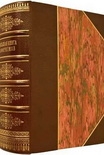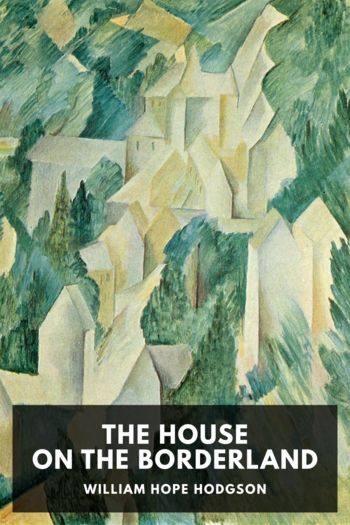Gluck by Diana Souhami (most interesting books to read .TXT) 📗

- Author: Diana Souhami
Book online «Gluck by Diana Souhami (most interesting books to read .TXT) 📗». Author Diana Souhami
‘The Expert Witness’ with Colonel Buckle in the box and ‘The Unofficial Jury’, a caricature of the crowds that hang around the courts, waiting to glimpse the accused.
Sybil also wrote about boxing, which influenced Gluck to paint a number of boxing scenes. ‘The Foul’ shows the spotlit ring at the Albert Hall on the night of 22 June 1930. The British bantamweight champion, Teddy Baldock, fighting the French champion Emile Pladner, went down in the sixth round from a blow the referee said was below the belt. Protest against the referee’s decision, largely from fans who felt robbed by the shortness of the contest, resulted in Pladner, not Baldock, being selected to fight Al Brown for the world title in Paris.
Joseph Gluckstein, Gluck’s father, died in November 1930. He preserved to the end an unrealistic hope that his daughter would straighten out and restrained any impulse to punish her financially for the wrong he felt she had done to him, The Family and the name of Gluckstein. He made no special mention of her in his Will, which made her bitter. Knowing he was dying, he put his affairs into order and wrote devoted farewell letters to his wife and his son. To Francesca he wrote:
I hope that our dear Hannah may so develop as to be like her dear mother, which to my mind embraces the wish that she will be a model woman, and as to our dear Louis, I pray he will do well in his profession not only financially but that he will continue to be, as he now is, an upright honourable man and a credit to the name of Gluckstein, which name I feel absolutely sure he will hand down to his children as unsullied as he received it.
I have not made any special bequest for Hannah … what has already been provided for her will maintain her handsomely … if other and less favourable conditions should arise I know that proper provision will be made for her from the family funds, to the same extent as for the children of my Partners and if this is done you should not provide more for her from my Estate as there is a moral understanding that after your death the balance of my Estate shall revert to the family funds, so that the children of all the partners shall be financially equal.
As regards the financial position of our dear Louis, I am happy in the knowledge that he is amply provided for, but I would like him to remember that money has its duties as well as its pleasures and I have not the least doubt that he will do what is right.4
To his son he detailed the financial obligations he wished to see honoured and said:
… And now my dear boy adieu. I am most grateful for all the happiness you have given to me from the day of your birth. You have been a truly model son and I can say that no son has ever given to his parents more happiness than you have to yours.
I pray you may be recompensed by having a very happy life with your sweet Doreen and that your dear children will give you as much happiness.
Your very loving father
J. Gluckstein5
He did not write to Gluck.
After his death, Gluck’s brother and mother became her principal trustees. Louis was, by 1931, a barrister, Conservative MP for Nottingham East, on the Board of numerous committees and the father of two children with a third shortly to be born. The youthful intimacy between him and Gluck had gone. He wanted her however to paint his portrait. He went to Bolton House for a couple of sittings, but somehow the picture never got finished.
Gluck did though, in 1930, paint a portrait of her mother in widow’s black with tense hands and eyes she described as ‘bleached from weeping’. She called it ‘The Artist’s Mother’. It shows the Meteor with overwide eyes and gaunt face and seems to presage the madness that was to blight the last decade of her life. The family disliked it for its gloominess and did not want it on their walls. After her father’s death Gluck wrote to or phoned her mother virtually every day, letters that showed affection, possessiveness, dependency and irritation. They were close but uncomfortable with each other.
… despite our closeness so often making friction nevertheless it is closeness and I love you.… Bless you darling and thank you.… I am in a great rush to dress and go out – thank God fortified by the clothes you made possible for me …
They were infinitely solicitous about each other’s health and welfare. The Meteor strove to give her rebellious daughter everything she could. Gluck was forever telling the Meteor where to get her teeth fixed, or what concoction to take to ward off colds, or advising her on her diet, or telling her not to work too hard, or more loftily, to spurn material considerations and
… concentrate on the fulfilment of the spiritual possessions of which you have such a tremendous store. Bless you –
… I want to tell you not to pay the Normand Garage for the work they did on my exhaust … The damned thing broke and trailed in the road before I





Comments (0)